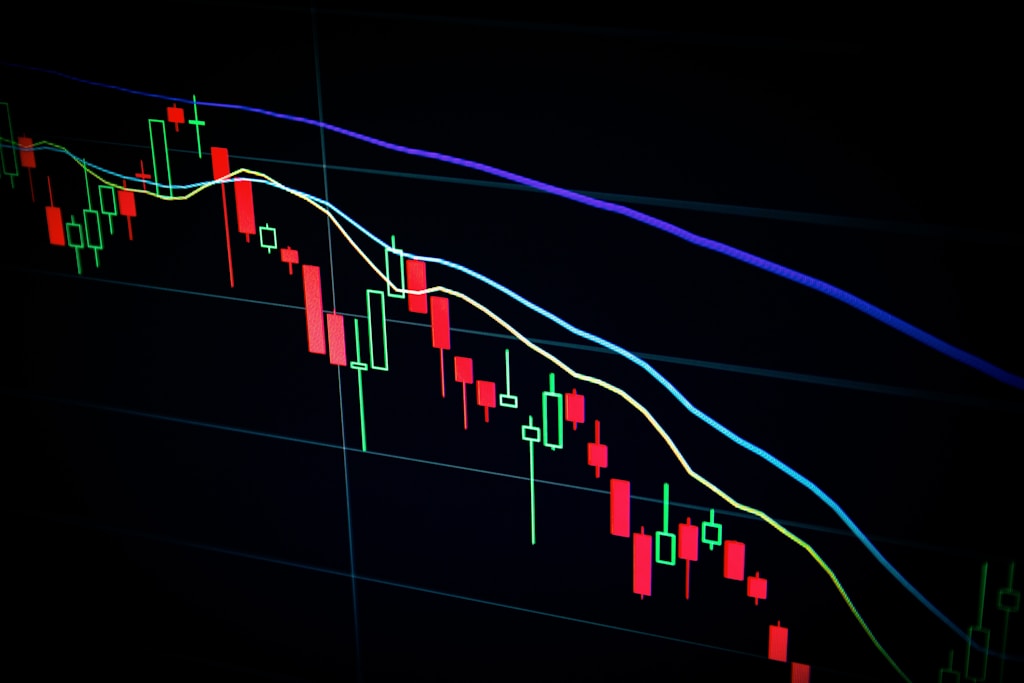XRP Realized Cap Plunges 50%: Market Metrics Signal Bearish Shift
XRP’s realized cap shows significant decline as market metrics signal bearish pressure. Analysis reveals key support levels and potential recovery scenarios …

The XRP market is experiencing a significant shift in momentum as its Total Realized Capitalization metric shows concerning signs of weakness. This comprehensive analysis explores the latest market dynamics and what they mean for XRP investors.
XRP Market Analysis: Key Metrics Point to Bearish Pressure
According to recent data from Glassnode, XRP’s realized capitalization has witnessed a dramatic decline, marking a significant shift in market sentiment. This development comes as XRP’s ambitious price targets face renewed scrutiny amid changing market conditions.
Key Findings from the Realized Cap Analysis:
- Total realized cap nearly doubled from $30.1B to $64.2B during February’s rally
- New investor inflows contributed approximately $30B to the surge
- Current holder supply >6 months represents 62.8% of realized cap, up from 23%
Retail Participation and Market Risks
The significant concentration of new holders presents both opportunities and risks for the XRP ecosystem. While increased retail participation typically signals growing adoption, it also introduces potential market vulnerabilities:
- High-cost basis positions create selling pressure risk
- Profit/Loss ratio shows persistent decline since January
- Majority of holders currently underwater on investments
Technical Analysis and Price Projections
Despite the bearish metrics, some analysts maintain optimistic outlooks. Technical analyst Javon Marks identifies potential bullish signals:
- MACD approaching critical breaking point
- Regular bullish divergence pattern forming
- Potential recovery target at $3.30
FAQ: XRP Market Outlook
What’s causing the current XRP market weakness?
The decline in realized cap suggests a combination of profit-taking by early investors and reduced new capital inflows following February’s rally.
Could XRP recover its previous highs?
While technical indicators show potential for recovery, the high concentration of underwater positions may create resistance to upward price movement.
What should XRP investors watch for?
Key metrics to monitor include realized cap trends, profit/loss ratios, and new investor inflow rates as indicators of market health.
As the market continues to evolve, investors should maintain careful position sizing and risk management strategies, particularly given the current market dynamics and concentration of retail positions.



